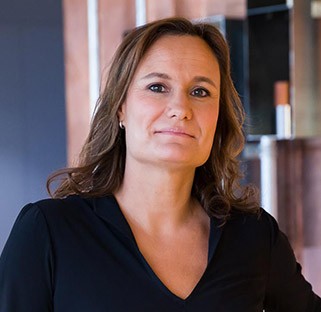Using Data to Drive Continuous Improvement

If you were going to choose a poster child for modern business disruption, Airbnb would certainly make the short list. According to The Wall Street Journal, the company currently has a $25.5 billion valuation. To put that in perspective, Marriott, which manages more than 4,000 hotels, is valued more than $4 billion lower. Airbnb’s rapid incursion and the growth of the broader home-sharing economy have companies acting fast to grab a portion of the market: Last November, Expedia made its biggest-ever corporate acquisition, purchasing holiday rental platform HomeAway for $3.9 billion.
None of this seems to worry Gillian Tans, CEO of the world’s largest accommodation booking website, Booking.com. The company has been around since the dawn of the internet age (see “A History of Disruption” below) and is confident that its long-standing innovation-oriented culture of employee empowerment and commitment to research-based decision-making gives it an advantage over competitors new and old.
“It is important as a business to always stay agile,” says Ms. Tans, who was named CEO in April. “The marketplace is always changing, and if you aren’t agile enough to respond, you won’t be able to change with the times.”
An Empowered Culture
One of Booking.com’s key tenets is to create a frictionless experience for each and every customer who uses its service. According to Ms. Tans, delivering on that goal has meant developing a culture where employees are encouraged to continuously look for ways to improve the customer experience at every point in the travel journey.
The company’s recruiting team actively seeks out entrepreneurial employees who are not afraid to constantly suggest what they could do better—and then to do it. “It’s all about empowerment,” Ms. Tans says. Booking.com has a relatively flat hierarchy of self-steering teams expected to make their own decisions. “We try to put decision-making as low as possible in the organization so we can move quickly,” she says. “If you have to go all the way to the top to approve every decision, it slows everything down.” Share on X
This decentralized approach can lead to failures, but Ms. Tans sees that as essential to what Booking.com does as a tech company. “The quickest way to innovate successfully is to make lots of little mistakes on your way to getting it right,” she says. “If you’re afraid of failure or getting it wrong, you’ll never truly innovate or disrupt the market. You’ll never test out those crazy, off-the-wall ideas that may actually be genius and make your product better for your customers. We celebrate failure at Booking.com because it’s a moment for us all to learn.”
This empowered culture also helps recruit tech professionals, who can be notoriously difficult to attract in the current war for IT talent. “It helps that we aren’t based in Silicon Valley, where everyone is fighting for the same people,” Ms. Tans says. The company’s chief techn ology officer says he spends roughly 30 percent of his time on recruiting efforts to be sure the company can find and keep the best people.
ology officer says he spends roughly 30 percent of his time on recruiting efforts to be sure the company can find and keep the best people.
Booking.com’s global recruiting efforts have resulted in a workplace with more than 85 nationalities at the Amsterdam headquarters alone. “Our diverse and international workforce is representative of our business,” Ms. Tans says. The company has also invested in having local talent on the ground to build partnerships with accommodation providers. These teams are better able to understand the unique cultural demands of travelers from different countries and discuss ideas for how each website can and should work for those different countries and cultures.
Test to Be Sure
To ensure all the choices being made by its self-governing project teams align with strategic goals, the company relies on technology and data analytics.
Booking.com tests every choice it makes on the site, Ms. Tans says, from big decisions about which properties to feature on the home page and what kinds of content to offer travelers, to smaller choices like where to put a button on the page and what color that button should be. Ms. Tans estimates the development team runs up to 1,000 such experiments on the site daily. “We didn’t just build a beautiful website and put it online,” she says. “We are constantly looking for ways to improve it. It’s important to always focus on data and what is measurable.”
Every choice starts with an A/B testing experiment: Two options are tested on the site, then data is tracked regarding how customers responded to each option and analyzed to determine which one (if either) led to “positive conversions”—i.e., whether one choice drove more bookings than the other. This test methodology is critical, Ms. Tans says. “If you have 10 good ideas, but only one of them is going to succeed, the chance that you will make the wrong decision is pretty big. We have always believed that it is better to take a lot of small steps to see what works.”
Some seemingly good ideas just do not pass the tests. For example, early on, executives were convinced the site needed a live chat feature, but when they tested it on the site, no one used it. Similarly, many partnering properties wanted the site to feature videos showing off their properties. But during testing, customers did not watch them. “It made sense based on how long people want to spend on the site,” Ms. Tans says. Not only did the testing help Booking.com determine video was not a good choice for the business model, but it also helped them prove to property owners that video was not the best way to drive business.
“We try to put decision-making as low as possible in the organization so we can move quickly.”
“Even if you think you know what the customer wants, you need to follow what they actually do to be sure,” she says. “When you make decisions based on data, you can trust that you’ve made the right choice.” Share on X
Ultimately, this self-driving culture and data-driven approach shapes Booking.com’s home-sharing offerings. Ms. Tans says Booking.com has a smoother booking process than sites like Airbnb, with features such as instantly accessible room availability so customers can book on demand rather than have to wait to hear from property owners whether their shared space is open. That is especially important in a mobile booking environment, she says. “If you are booking a room via mobile, you don’t want to wait around.”
Today, Booking.com offers more than 6.6 million bookable rooms in “non-hotel” options, including villas, homes and apartments, compared to Airbnb’s 2 million locations. Yet, despite these numbers, Booking.com cannot afford to rest on its laurels. The competition remains fierce. “In terms of the global market for accommodation, there are still so many amazing stays out there to bring to our customers,” Ms. Tans says. “The key to powering our ongoing growth and exceeding traveler expectations is to leverage technology to innovate in new ways so that we can continue to source diverse accommodation options of every possible kind in a smart, scalable way.”



